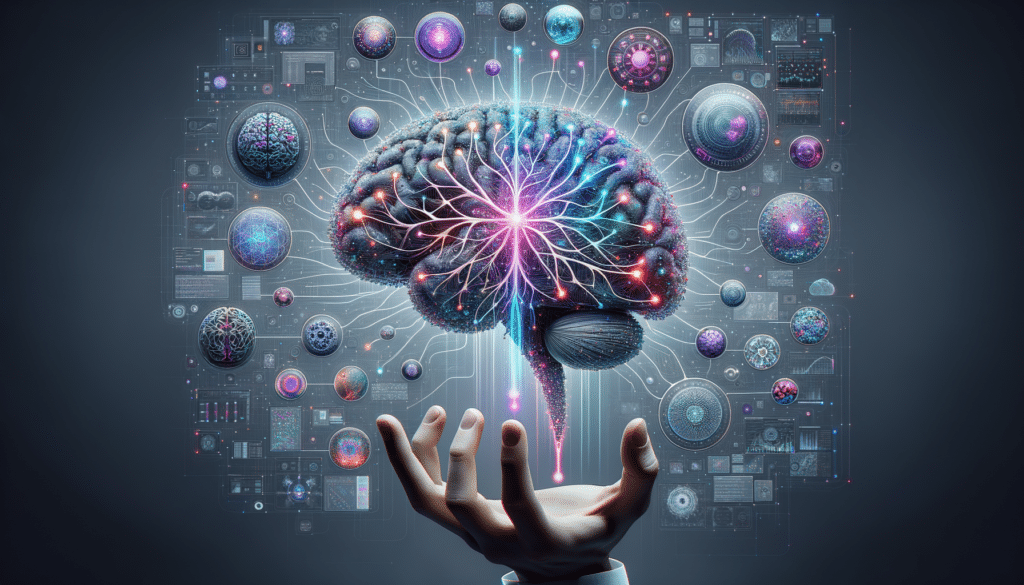Understanding Generative Intelligence
Generative Intelligence, a subset of artificial intelligence, refers to the capability of machines to generate new content, data, or solutions based on learned patterns and inputs. Unlike traditional AI, which focuses on data analysis and pattern recognition, generative intelligence emphasizes creativity and innovation. This technology leverages advanced algorithms, such as neural networks and deep learning, to produce outputs that can range from text and images to music and even complex problem-solving strategies.
The importance of generative intelligence lies in its potential to revolutionize various sectors. For example, in the creative industry, it can assist artists by generating new ideas or even entire artworks. In fields like healthcare, generative models can help design new drugs or treatment plans by simulating numerous scenarios and outcomes. The ability to generate rather than just analyze opens up a realm of possibilities that can lead to significant advancements across multiple domains.
Key characteristics of generative intelligence include:
- Autonomy: The ability to operate independently without constant human guidance.
- Adaptability: Learning from new data and evolving its outputs accordingly.
- Creativity: Producing novel and original content that mimics human creativity.
Applications in Various Industries
Generative intelligence is making waves across numerous industries, showcasing its versatility and transformative potential. In the entertainment sector, for instance, it enables the creation of immersive virtual worlds and personalized gaming experiences. By analyzing player behavior, generative models can adapt game environments in real-time, offering unique experiences to each user.
In marketing, generative intelligence is used to craft personalized content and advertisements that resonate with individual preferences and behaviors. This level of customization enhances user engagement and can significantly improve conversion rates. Furthermore, in architecture and design, generative algorithms assist in creating innovative structures and layouts, optimizing both aesthetics and functionality.
Some notable applications include:
- Healthcare: Drug discovery and personalized medicine.
- Finance: Algorithmic trading and risk assessment.
- Manufacturing: Optimizing production processes and product designs.
Challenges and Ethical Considerations
While the potential of generative intelligence is immense, it is not without challenges and ethical dilemmas. One major concern is the quality and authenticity of generated content. As machines produce increasingly human-like outputs, distinguishing between human and machine-generated content becomes difficult, raising questions about originality and intellectual property rights.
Moreover, there is the ethical issue of bias in generative models. These models learn from existing data, which may contain biases that are then perpetuated in the generated outputs. Addressing these biases requires careful curation of training data and continuous monitoring of model outputs.
Key ethical considerations include:
- Transparency: Ensuring users are aware when they are interacting with machine-generated content.
- Accountability: Defining responsibility for the outputs of generative systems.
- Privacy: Safeguarding user data used in training generative models.
The Future of Generative Intelligence
The future of generative intelligence is bright, with advancements in AI technologies and increasing computational power driving its growth. As these systems become more sophisticated, they will continue to blur the lines between human and machine creativity, offering new tools for innovation and problem-solving.
One area of future development is the integration of generative intelligence with other emerging technologies, such as quantum computing and blockchain. This could lead to even more powerful and secure generative systems capable of tackling complex global challenges.
Future prospects include:
- Enhanced collaboration between humans and machines in creative processes.
- Development of ethical frameworks to guide the use of generative technologies.
- Expansion into new fields such as environmental science and urban planning.
Conclusion
Generative intelligence represents a significant leap forward in the capabilities of artificial intelligence. By enabling machines to create and innovate, it opens up new possibilities for industries ranging from entertainment to healthcare. However, as we embrace these advancements, it is crucial to address the ethical and practical challenges they present. With careful consideration and responsible development, generative intelligence has the potential to become a cornerstone of future technological progress.
